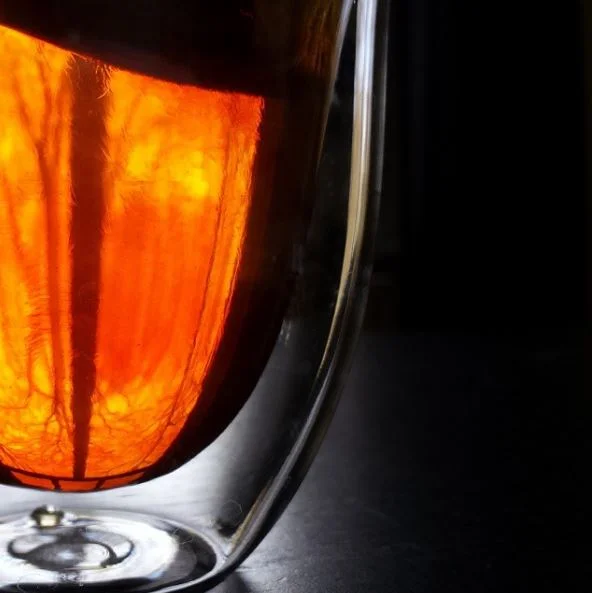All we can ever hope to do, Sigmund Freud once wrote, is “to change neurotic misery into common unhappiness”. This pessimistic statement from arguably the most influential psychological theorist of modern times captured the mood that prevailed in psychology through most of the 20th century. That is, most psychologists, psychiatrists and psychoanalysts were essentially guided by a model of the patient that was based on what was wrong with people, and how to deal with these deficiencies.
Why time seems to go by more quickly as we get older
Research Check: is it true only half your friends actually like you?
Does drinking hot tea in summer really cool you down?
I remember as a child, on the rare warm days that we used to get in Britain, my grandmother telling me to “have a cup of black tea … it will help cool you down”. As a seven-year-old, this seemed like a crazy idea, especially when all I wanted was a cold lemonade and another ice cream. But it appears that this old wives’ tale may actually be more Stephen Hawking than Stephen King.
Why can’t we remember our early childhood?
Most of us don’t have any memories from the first three to four years of our lives – in fact, we tend to remember very little of life before the age of seven. And when we do try to think back to our earliest memories, it is often unclear whether they are the real thing or just recollections based on photos or stories told to us by others.
Ever noticed time seems to move faster when you’re in control of things? Science can explain why
We’ve all been there: waiting for a boring meeting to finish or for a bus to arrive and time just seems to drag on far more slowly than usual. Yet our most enjoyable moments seem to whizz by at lightning speed. It seems obvious that more boring events appear to take longer than the ones that stimulate us. But there’s another reason we sometimes experience time differently.
Could we one day heal the mind by taking control of our dreams?
Health Check: which fruits are healthier, and in what form?
Most of us know eating fruit daily is a great way to try to stay healthy, with the Australian Guide to Healthy Eating encouraging us to eat two serves a day. This is because they are relatively low in energy content and rich in fibre, antioxidants and some phytochemicals that may have beneficial health effects.
What is the world’s hottest chilli?
Why stress is more likely to cause depression in men than in women
Want to lose weight? Train the brain, not the body
Despite massive government, medical and individual efforts to win the war on obesity, 71 percent of Americans are overweight. The average adult is 24 pounds heavier today than in 1960. Our growing girth adds some US$200 billion per year to our health care expenditure, amounting to a severe health crisis.
How the hidden mathematics of living cells could help us decipher the brain
Given how much they can actually do, computers have a surprisingly simple basis. Indeed, the logic they use has worked so well that we have even started to think of them as analogous to the human brain. Current computers basically use two basic values – 0 (false) and 1 (true) – and apply simple operations like “and”, “or” and “not” to compute with them. These operations can be combined and scaled up to represent virtually any computation.
What is love? Here’s the science…
Poets write about it, singers sing about it. We've all felt it at some time in our lives. There is even an entire industry that has been created around finding it, expressing it and maintaining it. But what is Love? What is really going on in our minds when we ''fall head over heels?'' Here's the science of it.
Do you even lift? Why lifting weights is more important for your health than you think
Regular participation in muscle strengthening activity such as weight or resistance training has many health benefits. However, this mode of exercise has been largely overlooked in Australian health promotion. Our recent research shows a large majority of Australians do not engage in muscle strengthening activity.
Explainer: how do drugs work?
You really can die of a broken heart – here’s the science
When you think of a broken heart, you probably picture something out of a romantic movie or a cartoon heart, cracked like a fragile piece of china. Indeed, so-called “broken heart syndrome” has a certified place in popular culture, and has been eloquently used in films such as The Notebook. But while we certainly feel “heartbreak” during periods of emotional upheaval, can you actually die of a broken heart?
Kitchen Science: everything you eat is made of chemicals
We are routinely warned by earnest websites, advertisments and well-meaning popular articles about nasty “chemicals” lurking in our homes and kitchens. Many tout the benefits of switching to a “chemical-free lifestyle”. The problem is: the word “chemical” is entirely misused in these contexts. Everything is a chemical
Could humans hibernate?
On cold, dark days it is tempting to imagine shutting yourself away until the warmer weather returns. Many animals do just that by entering a state known as torpor, which reduces their bodily functions to a minimum and uses fat stores in their body for energy. Could humans ever hibernate in the same way?
Ten myths about smoking that will not die
What makes us conscious?
Do you think that the machine you are reading this story on, right now, has a feeling of “what it is like” to be in its state? What about a pet dog? Does it have a sense of what it’s like to be in its state? It may pine for attention, and appear to have a unique subjective experience, but what separates the two cases?













